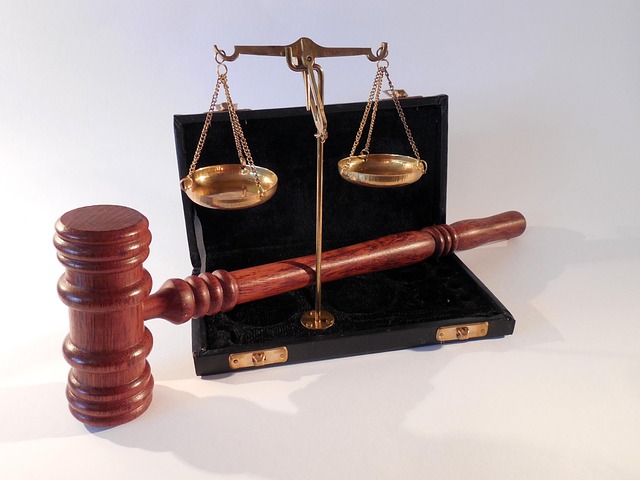In the digital age, Consumer Protection Laws for Online Purchases are vital to safeguard consumers from unfair business practices, including price fixing and market manipulation. These laws ensure transparency and ethical dealings, empowering consumers to recognize illegal practices. Attorneys specialize in enforcing these laws, promoting trust, competition, and positive societal impacts by combating antitrust violations against tech giants, resulting in higher fines and reforms for non-compliant companies.
In the dynamic landscape of e-commerce, understanding consumer protection laws like antitrust is crucial for both buyers and sellers. This article delves into the intricacies of antitrust violation cases, focusing on their impact on digital markets and how they safeguard online purchases. We explore common violations, consumer rights, legal recourse, and the broader implications of these cases. By understanding these dynamics, consumers can navigate the digital realm with enhanced awareness and confidence, ensuring fair practices in their online transactions.
- Understanding Antitrust Laws in E-commerce
- Online Purchases: Common Violations and Examples
- Consumer Rights: How to Identify Unfair Practices
- Legal Recourse: Enforcing Protection for Buyers
- The Impact of Antitrust Cases on Digital Markets
Understanding Antitrust Laws in E-commerce

In the digital age, e-commerce has become a cornerstone of global trade, transforming the way consumers interact with businesses. As online transactions surge, so does the importance of antitrust laws in ensuring fair competition and consumer protection. Antitrust regulations are designed to maintain market equilibrium by preventing businesses from engaging in anti-competitive practices that could harm both buyers and sellers. These laws are particularly crucial for e-commerce platforms, where their size and reach can sometimes lead to dominant positions in specific markets.
Understanding antitrust laws is essential for online retailers and consumers alike. Consumer protection laws for online purchases aim to safeguard users from exploitative pricing, limited choices, or any practices that stifle competition. For businesses operating in this space, adhering to these regulations is not just a legal obligation but also a strategy to build trust with their clients. A robust white-collar defense mechanism can help respective businesses navigate complex antitrust issues and ensure they are providing a level playing field for all participants in the e-commerce ecosystem.
Online Purchases: Common Violations and Examples

Online purchases have become a ubiquitous part of modern life, but with this convenience comes the risk of running afoul of antitrust violation cases. Consumer Protection Laws for Online Purchases are designed to safeguard buyers from unfair practices and maintain a level playing field for retailers. Common violations include price fixing, where competitors collude to manipulate prices, and market division, where companies restrict sales in certain geographic areas.
For instance, a scenario where multiple online retailers agree not to sell a particular product below a set price constitutes price fixing. This practice hurts consumers by limiting competition and driving up costs. Throughout all stages of the investigative and enforcement process, whether it’s a simple dispute resolution or complex litigation, legal professionals focused on these cases work tirelessly to protect the interests of both consumer and philanthropic and political communities. They ensure that online purchasing remains a safe and fair experience for everyone involved.
Consumer Rights: How to Identify Unfair Practices

When it comes to consumer rights, especially in the digital age, identifying unfair business practices is a significant aspect of protecting oneself. In the context of online purchases, Consumer Protection Laws serve as a safeguard against potential antitrust violation cases. These laws are designed to ensure transparent and ethical dealings between businesses and consumers. By understanding one’s rights, individuals can navigate the market more effectively and avoid becoming victims of illegal practices.
One common strategy employed by businesses to stay above board, while engaging in unethical behavior, is through skilled general criminal defense. However, it’s crucial for consumers to recognize red flags such as price fixing, market division, or any attempt to manipulate markets for personal gain. For his clients, attorneys specializing in antitrust law play a vital role in educating the public about these issues and advocating for fair trade practices, thereby ensuring a safer online shopping experience.
Legal Recourse: Enforcing Protection for Buyers

When it comes to antitrust violation cases, especially concerning online purchases, consumers have a powerful legal recourse under consumer protection laws. These laws are designed to safeguard buyers from unfair business practices and ensure competition in the digital marketplace. By enforcing these protections, individuals can hold companies accountable for any anti-competitive behaviors that may result in higher prices or limited choices.
For his clients seeking justice, these legal avenues offer a chance to combat white collar and economic crimes. The outcome of such cases not only benefits individual buyers but also has implications for the broader philanthropic and political communities. Effective enforcement ensures a fair and transparent online environment, fostering trust in digital transactions and promoting healthy competition that ultimately benefits society as a whole.
The Impact of Antitrust Cases on Digital Markets

In the digital age, where online markets are booming, antitrust violation cases play a pivotal role in shaping fair competition and consumer protection laws for online purchases. High-stakes cases have emerged as game changers, disrupting the hustle and bustle of giant tech companies and their intricate business models. These legal battles often revolve around issues such as data sharing practices, algorithmic biases, and market dominance, which can significantly impact the dynamics of digital markets across the country.
Antitrust laws are designed to protect consumers from anti-competitive behaviors that may lead to higher prices, reduced choices, or innovative barriers. When tech giants violate these laws, it creates a ripple effect, raising concerns about privacy, fair trade practices, and the overall health of online marketplaces. As a result, companies found guilty face not only substantial fines but also the risk of avoiding indictment by implementing necessary reforms to ensure compliance with consumer protection regulations.
In light of the above discussions, it’s evident that understanding and enforcing consumer protection laws for online purchases, such as antitrust violation cases, are vital in maintaining fair digital markets. By recognizing common practices like price fixing and market division, consumers can assert their rights and seek legal recourse. Navigating these protections enables a robust e-commerce landscape where buyers enjoy transparent, competitive, and trustworthy transactions.






